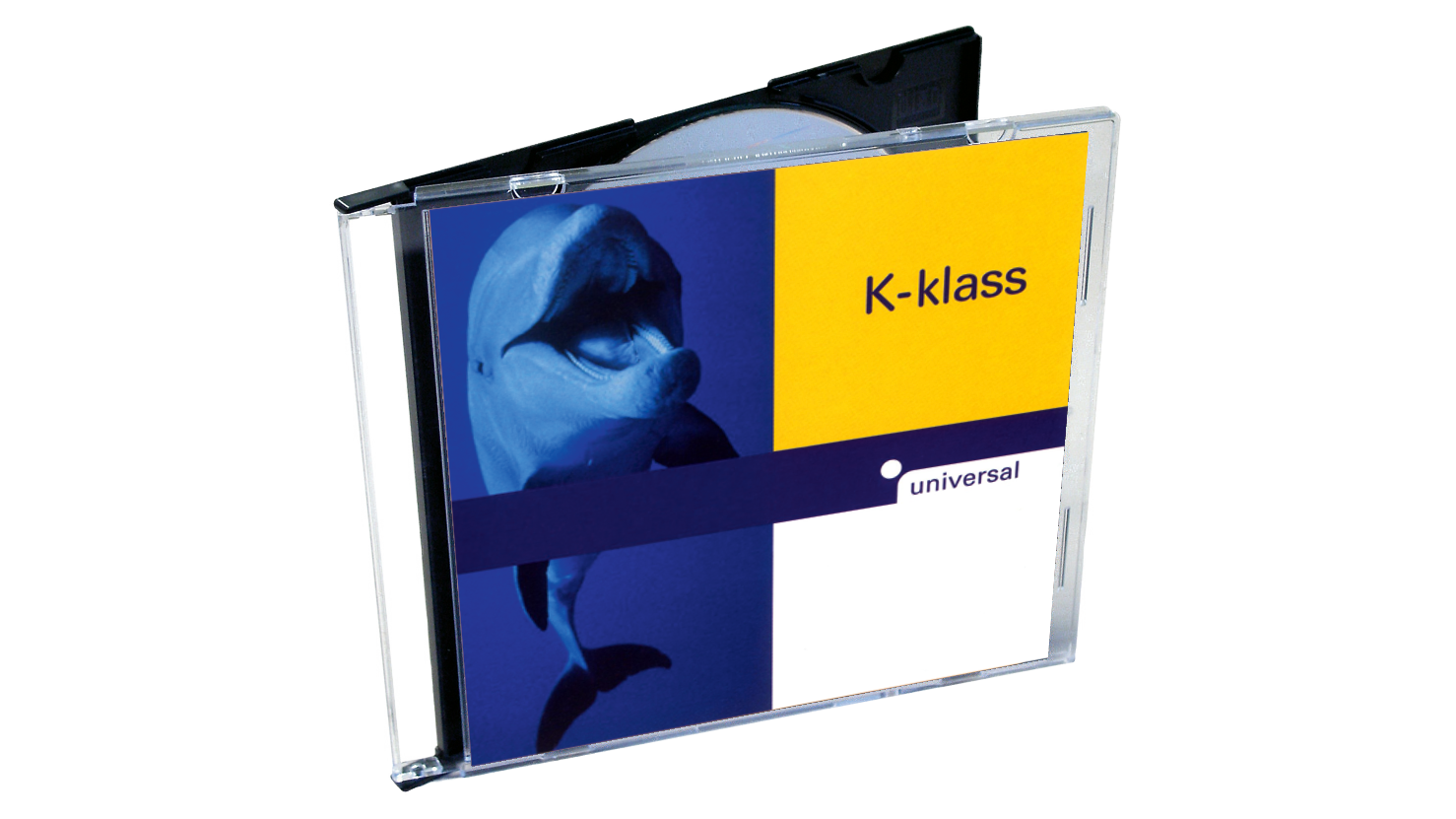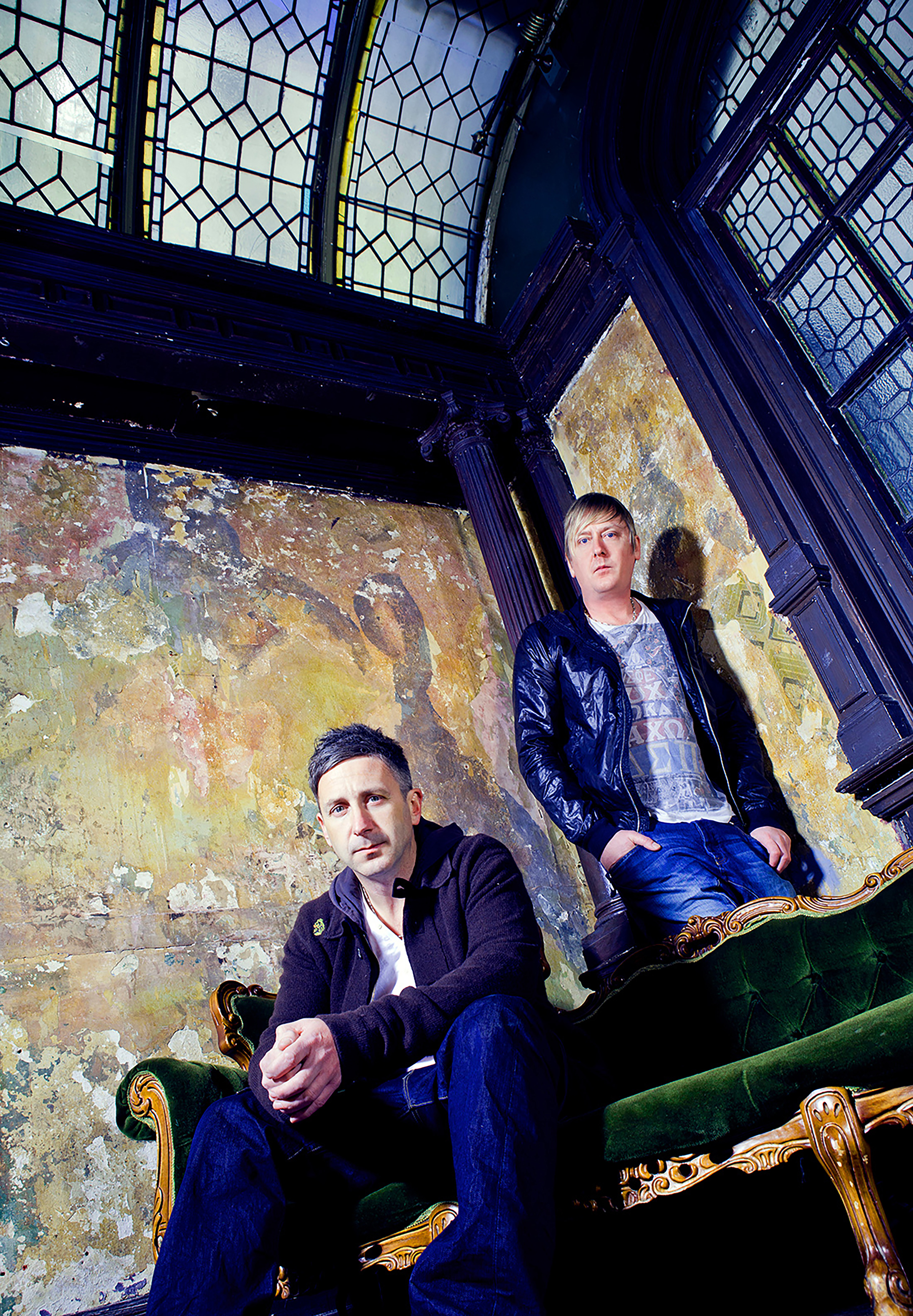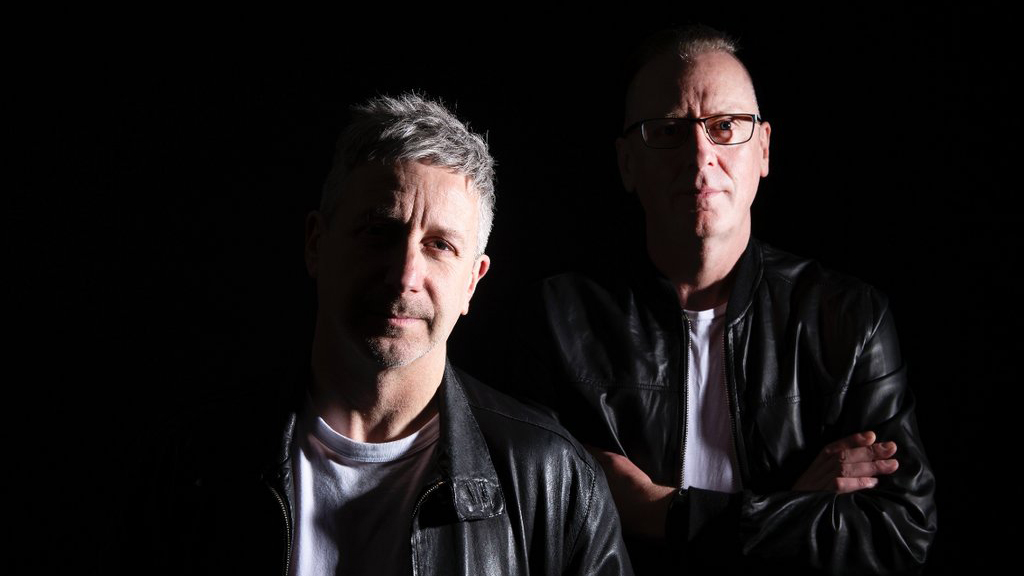
What a time to pull a rewind on a dance album from the UK golden era. This K-Klass classic, featuring tracks that dominated pop charts and helped define the template for acts that followed, celebrates its 30th anniversary this year.
Full of catchy hooks, deep beats, soaring vocals, and arrangements ahead of the curve, this one holds a special place in the hearts of misty-eyed ravers, and clubbers their kids’ age, getting hooked on house music history.
The duo of Paul Roberts and Russ Morgan fly the flag for K-Klass today. But, the act started life with extra players: Andy Williams and Carl Thomas having helped kickstart the music making at the very beginning.
In classic fashion they all bonded over a love of clubbing, and started tinkering with bits of kit after late nights bopping.
Bitten by the bug, Paul began assembling his own hardware setup, putting his British Telecom redundancy money to good use in the process.
“I used the payout to buy myself a Roland TR-505 keyboard that wasn’t even MIDI,” he says. “My dad virtually kicked me out the house after that! He only apologised, later, when we had a record in the charts [laughs].”

That record was the bonafide smash hit Rhythm Is A Mystery. An obvious highpoint on this debut album, and a jam that continues to make “Greatest Dance Singles Of All-Time” lists today.
Surprisingly, for the era, the vocals weren’t a sample. Career-spanning K-Klass singer (and Paul’s wife), Bobbi Depasois, provided the timeless topline.
“We thought everybody was doing it,” says Russ. “Bassheads, N-Joi, and Bizarre Inc…It wasn’t until later that you realised all those acts were just a pile of samples. And we were literally one of the only ones taking the time to write our own original vocals, and be successful with it. Looking back, that’s something we’re very proud of.”
There’s plenty of other sources of pride to be found on this LP, matey. So, sit back as Paul and Russ break down the career-starting album that’s kept them filling clubs since it first dropped way back in 1993.
The gear behind K-Klass' Universal
PR: “In the studio we had a Spirit desk, which was basic but we loved the sound of it. Then every bit of analogue kit going, like the 101, 202, 303, and 909.”
RM: “We also had a Jupiter-6, for a while. And drum-machine-wise, we had an Alesis D4, which we used for a lot of sounds. And a rack-mounted R8. And, for the album keyboards-wise, we had the Korg Wavestation featuring heavily. Prophet VS. The Kurzweil K2000 for saw-tooth sounds. A little Casio CZ-1, for that one bass sound. Oberheim Matrix and the Four Voice, for a short time. And then an OSC OSCar. And we just about had a JV-1080 at that point.”
RM: “And we had an Akai S1000, which we managed to upgrade to 8MG and we were so happy.”
PR: “Everything on this was done on huge MIDI chains. And the further that we got into tracks, the looser that it then got [laughs]. There was also some basic editing done on the tracks after we finished the album on an AMS AudioFile.”

Universal track-by-track
1, 2, 3
Russ Morgan: “This track was started in Blueprint Studios in Manchester. But, we came away with nothing at the end of that session. There ended up being some great sounds on that track, though.
“All the saw-tooth sounds and stuff like that came off the Kurzweil [K2000]. There’s also a siren at the beginning that was a preset on the [Korg] Wavestation that was just one of a series of really interesting arpeggiated effects that were new to us on that machine.
“And it was around that time as well that dance music in general was getting a little bit tougher and a little bit more linear in its production. And I think that’s reflected in that track.”
Paul Roberts: “Yeah, you had the 909 drums in there, and stuff like that. With the sort of Detroit techno influences, too.”
I Can Take Some More
PR: “It was Mark Stagg, who’d also originally put us in touch with [lifetime K-Klass lead vocalist] Bobbi Depasois, who suggested this guy called Kevin Sullivan. And he had this lovely, rich, warm, soulful voice that we were drawn to instantly. And, because we really wanted at least one male vocal track on the album, we got in touch. He’s a fantastic vocalist.
“The sounds were all off keyboards we’d just bought at the time. It was a mixture of Wavestation, K2000, and the piano was off a Yamaha SY22.”
RM: “The production had that US garage-y sound with the male vocal. That was a big influence. We were listening to a lot of David Morales and his Red Zone mixes.”
PR: “Yeah. With the light and dark synth sounds and really sweet, warm pianos, chords, strings and lovely arrangements in there.”
Rhythm Is A Mystery
PR: “This first came out in ’91 on Creed, which was Eastern Bloc’s label, and it takes us right back to the very beginnings of K-Klass, really.
“Our only real goal was to have a record played in the Haçienda, which we went to every week. That’s where we met [ex-K-Klass members] Andy [Williams] and Carl [Thomas].
“After the club one night we went back to the studio, which was someone’s bedroom in Wrexham, and they had a 909 drum machine, which we started playing with. It was like, ‘Wow! This is all you need’. So, we made four tracks which became the Wildlife EP.”
RM: “It really was a dumbed down setup. A whole lot of the time we were using Andy’s Ensoniq SQ-80 as a 16-track sequencer. It was all done completely freestyle.”
PR: “Then by November ’91 it all absolutely exploded. And I think the track debuted at Number 6 in the UK singles chart, before getting to Number 3.”
Let Me Show You
PM: “This was another absolutely massive tune for us. We can still play that in any set, anywhere. You know, when we’re playing upfront stuff and stuff like that, it still holds its own. It’s absolutely enormous.
“I remember we’d been out clubbing at Cream in Liverpool, which had just started. And they’d get all these big names from the US down for all-nighters like Roger Sanchez, David Morales, and then this month it was Tony Humphries.
“We sneakily put our tape recorder into the outputs on the mixer and recorded his set. We were absolutely blown away by it. And, again, all the band were there, and we went straight from the club to Wrexham. And listened back to this MiniDisc and took little ideas from the set, and ended up making about six tracks, and this was one.”
Don't Stop (The Farley/Heller Mix)
RM: “We didn’t put our own version on the album. We just loved Farley and Heller and had to use theirs. We loved all that Junior Boy’s Own stuff. Their production was amazing.
“The first time we heard this mix was at Out Of The Blue Studios in Manchester, after they’d sent it over to us. And the sub bass they’d got in it blew us away.
“We were sat there with [engineer] Mark Stagg and he said, ‘Can we recreate that?’ And we weren’t really sure. There was so much bass, even on small monitors.
“It was a very US-sounding production they did on that, which was very unique. They were really the only people in the UK capable of doing that, back then. I mean, we’re just massive fans of theirs, even to this day.”
1, 2, 3 (Sabres of Paradise Mix)
PR: “This is a remix of the first track on the album by Andrew Weatherall.”
RM: “He did a great job. We were more used to his Junior Boy’s Own stuff, which was more musical and less techno-sounding. So, when we heard this, we were blown away.
“We’d not heard anything like it. The big, boomy, long reverb-y kick drum, is absolutely rinsed to death now in modern European techno.
“To be honest, we were first a little unsure of it, with all of those clanking metallic sounds. But, he said, ‘Oh, I was walking past some scaffolding and recorded me hitting it with some keys on my Dictaphone’ [laughs]. I mean, a true pioneer. And the scene is a poorer place without him, basically.”
Underground Express
RM: “This was originally called ‘Wrexham Express’ [laughs]. It was all a nod to X-Press 2.”
PR: “Again, we were experimenting with tougher sounds. And I think the K2000 features heavily on that, for some of the sort of tougher-edged, digital synth sounds you can hear.
“Later, we went on to record a deluxe edition of this album. And Graham Park was given a whole list of potential tracks to remix. And, strangely enough, rather than picking on the vocal tracks to remix, he actually went for this. It’s probably about the toughest track on the album, and he did his own thing on that, which was really good, too.”
What You're Missing
PR: “This is a curious one, this, because the album version is almost a completely different song.”
RM: “Once we’d released the album, we decided to go with it as a single, and we started working on a new mix, which really did turn into something completely different.”
PR: “It was also one of the first tracks we did on an Atari 1040ST with Cubase, which you can instantly hear when listening back.
“And it was heavily influenced by the tracks that were coming out on Strictly Rhythm and Nu Groove, at the time.
“We’ve gone full circle now, as we’re putting out new music under another name on the new incarnation of Nu Groove via Defected Records. Watch out for that.”
Taking Me Over
PR: “Another American influenced one. The top line was written by a guy from some writers called The Hippies who were brought in to lend a hand. They used to write for MCA, and were in an ’80s band called Kissing The Pink, who had a big hit back then.
“Musically it was probably inspired by the Detroit techno tracks we liked that had the fast pianos and fast 909 rhythms in them.
“I think we may have played this one live once or twice, but it had its place on the album.”
La Cassa
PR: ‘This features [legendary guitarist from The Smiths] Johnny Marr. Turns out he was, like, a big fan of… us. And we were massive fans of his.
“I’d come from an indie background, before entering dance music. And he also happened to be a massive synth fan with a huge collection of his own, which was actually almost as impressive as his guitar collection.
“We loved the electronic stuff he’d done with Bernard Sumner from New Order, so it was great to get him on the album. He did an amazing job on the track.
“He actually came out and performed it live with us a couple of times, which was a really surreal experience, sharing a stage with Johnny Marr.
“We were listening back to it today and we think you could make just a fantastic Balearic summery remix out of it, so we might have to, inspired by this interview.”
Share Our Love
RM: “Jacqui Williams!”
PR: “Jacqui Williams. Yeah. We tried one track with a guest vocalist on the album. And it was on that Ibiza, downtempo, Balearic sound tip.
“Great music on that track. And it just seemed like a really nice track to close the album with.
“We since did it live with Bobbi Depasois, and we should record a version with Bobbi sometime.”
RM: “It’s really a nice song. Live sax by Martin Green.”
PR: “All of the strings are off the Wavestation. It would be really nice to re-record it now, except with live strings. Especially now that we’ve recently co-produced all the Cream Classical orchestra shows and have worked with all of these amazing classical musicians.
“It’s not often you get to go back through your back catalogue, what with DJing four/five times a week, and doing our radio shows, but we really should, so watch this space!”
K-Klass bring their hugely in-demand four-deck DJ showcase to the Beat-Herder festival this summer (Lancs, July 13-16). Expect live remixed classics, upfront heat, freestyle acapella flipping, and high-energy re-works of their much-loved back catalogue. Find out more on Beat Herder's website.
“90% of the stuff we play are our own edits,” says Russ. “And we put a modern spin on everything. So, you get the hooks for the older fans, and the weight and the bass for the younger crowd.”
Joining them on the bill are fellow dance music legends Pendulum, Peter Hook, Eats Everything, Alison Goldfrapp and more.







